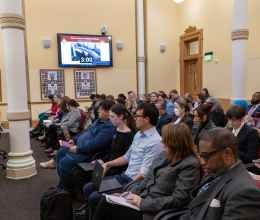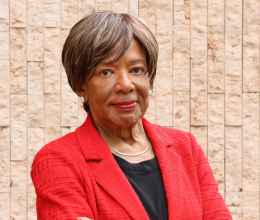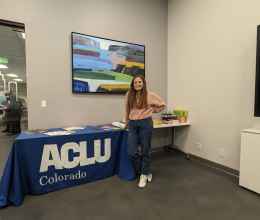
The American Civil Liberties Union (ACLU) Foundation of Colorado announced today that it has filed a class action lawsuit challenging a Colorado statute that forbids persons on parole from voting or registering to vote.
“More than 6000 persons on parole are illegally denied the right to vote by a Colorado statute that the state legislature enacted in the early 1990s,” said Norman Mueller, an ACLU volunteer attorney who is litigating the case for the ACLU. “We are asking the court to declare that this statute violates rights that are guaranteed by the Colorado Constitution.”
According to the ACLU, the Colorado Constitution provides that offenders lose their right to vote only during the time they are incarcerated in prison. Their right to vote is restored automatically when they complete their sentence and are released on parole, Mueller said.
“The Colorado Supreme Court has said in several cases that when prisoners are released on parole, they have completed their term of imprisonment,” Mueller explained. “Because they have completed their prison term, the Colorado Constitution automatically restores their right to vote. But the statute passed by the legislature, and rules adopted by the Secretary of State, illegally deprive parolees in Colorado of their right to vote.”
Nationwide, as many as five million Americans are barred from voting by a variety of state laws that forbid convicted felons from voting for some period of time. In ten states, some felonies permanently disfranchise ex-offenders, and in three states, felons are effectively barred from voting for the rest of their lives. Fourteen states restore the right to vote when an offender leaves prison, and four others restore the right to vote after parole is completed. A number of states also forbid offenders from voting if they receive probation rather than a prison sentence. In contrast, two states permit prisoners to vote even while they are serving their prison sentences.
“There is a growing movement to reform many of the harsh state laws that disenfranchise offenders because of a past felony conviction,” said Mark Silverstein, ACLU Legal Director. “These laws are particularly damaging to the voting strength of communities of color. Voters and public officials are questioning whether these harsh penalties are consistent with our country’s commitment to equality, to democracy, and to the goals of rehabilitation and reintegration into society. In Colorado, the drafters of the state constitution addressed these questions. They decided that civil rights should be restored automatically when a prison sentence is completed. The lawsuit we filed today seeks to fulfill the original intent of the state constitution.”
The lead plaintiff and class representative in the case filed today is Pastor Michael Danielson, who became an ordained minister while in prison and currently directs a prison ministry, the Church of the Remnant Ministry, while on parole. The ACLU’s clients also include two organizations that are suing on behalf of their parolee members: the Colorado Criminal Justice Reform Coalition (CCJRC) and Colorado-CURE.
“People on parole live in the community and pay taxes,” said Christie Donner, Executive Director of the CCJRC. “Denying them the right to vote is taxation without representation. We also know that civic participation is a key component to successful reintegration.”
The lawsuit, Danielson v. Dennis, was filed in federal district court in Denver and names Colorado Secretary of State Gigi Dennis as the defendant.

